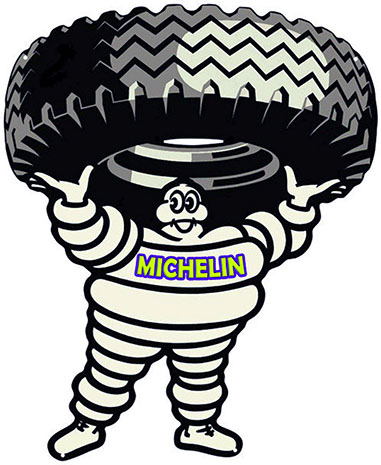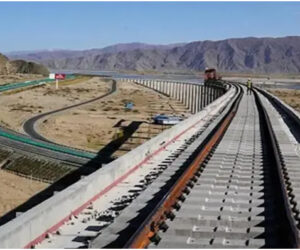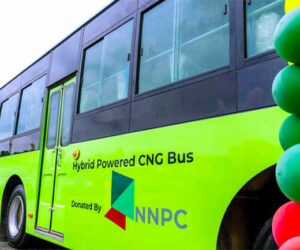1
When the horns blared, the roads may have groaned, but for Nigeria’s automotive world, last week’s announcement from Michelin marked a meaningful return. Just a few days ago, the French tyre manufacturer officially confirmed that it was re-entering the Nigerian market after almost two decades of absence.
The move signals a renewed vote of confidence in Africa’s largest economy and highlights changing dynamics within the local automotive and manufacturing sectors.
Early success and the 2007 exit
Michelin had for years operated in Nigeria, including a manufacturing plant at Port Harcourt, Rivers State – but in January 2007 it announced it would end production at that factory, citing an unfavourable business environment.
At the time the company stated that short-timeworkingmeasureswouldcontinue through to May of that year. The key reasons behind the pull-out were high energy costs, erratic power supply, infrastructure deficits and the influx of cheaper Asian imports.
Indeed, by the following year imported tyres accounted for about 90 per cent of the Nigerian market, a sharp increase from just 25 per cent in 2005. The local tyre manufacturing industry more or less collapsed. For Michelin’s old Port Harcourt plant the closure reportedly led to about 1,300 job losses. Local analysts and industry reports note that Nigeria once had two strong domestic tyre manufacturers – Michelin and Dunlop – but both progressively scaled down and exited.
Why Nigeria? Why now?
Fast-forward to the present and the landscape is different. According to market research, Nigeria’s tyre market is estimated at USD 0.82 billion in 2025, and projected to expand to USD 1.12 billion by 2030, at a compound annual growth rate (CAGR) of about 6.4 per cent. The growth is being driven by multiple factors: a vehicle-fleet of more than 40 million, expanding road networks, rapid urban mobility, and rising demand for mid-size and premium vehicles.
For Michelin, the decision to come back was publicly explained by Amaury Vadon (Managing Director, Michelin Sub-Saharan Africa) who said the company would establish a fully-owned local agency on Victoria Island, Lagos, with direct staff, regional distribution hubs (Abuja, Port Harcourt), and a focus on customer engagement, sustainability and brand positioning.
Rather than reopening the old factory in Port Harcourt, Michelin is selecting a leaner, more agile model: focus on branding, logistics, distribution and after-sales service rather than heavy manufacturing investment – at least for now.
What’s in the comeback?
The significance of Michelin’s return goes beyond one company’s decision. First, it sends a signal that foreign-brands see Nigeria as a viable market once again amid reform efforts, infrastructure improvements and a more stable macro-environment.
Second, it reflects a shift: many more consumers are reaching for quality and safety rather than just the lowest price, which plays to Michelin’s premium positioning. Industry commentary notes that while around 80 per cent of Nigerian buyers still opt for budget or used tyres, the gap for premium tyres is growing.
Third, Michelin’s stated intention to launch tyre-recycling trials in Lagos (beginning October 2025), aligns with its global commitment to sustainability and could bring ancillary benefits: training mechanics, improving standards, stimulating the logistics and service economy. These are promising, if incremental, contributions to the local ecosystem.
From boom to exodus to rebirth
In the 1990s and early-2000s Michelin and Dunlop were well-known names in Nigeria’s manufacturing sector. But increasing difficulties – infrastructural deficits (power outages, high energy costs), second-handandcheaperimports, weaker government protection and policy inconsistency – gradually eroded their businesses. By 2007 Michelin shut its local factory; by 2008 it was reported that 90 per cent of tyre sales in Nigeria came from imports.
In the years following, Nigeria’s automotive production and local tyre-manufacturing aspirations stagnated, and the market became heavily dependent on imports and lower-cost, lower-quality alternatives.
Now, with Nigeria pursuing industrial policy, road infrastructure upgrades, vehicle-financing programmes and a burgeoning middle-class, the conditions that once kept brands away are changing. Michelin’s re-entry is thus a kind of belated home-coming: not manufacturing in the old sense, but a re-engagement in brand presence, local staffing and post-sales service.
What lies ahead
Michelin’s new model faces some headwinds. Nigeria’s vehicle-fleet is ageing, repair and service sectors operate informally, the share of buyers buying used or second-hand tyres remains high, and local manufacturing infrastructure remains weak. For example, used-tyre imports and the informal resale market still dominate large segments of the market.
Further, while Michelin has stated employment gains will come via direct staffing and partner networks, the jobs are unlikely to match the 1,300 lost in 2007 – at least not immediately. The company’s focus on logistics, sales and technical support means fewer heavy manufacturing roles. Nonetheless, analysts expect ripple-effects in distribution, training and service sectors.
Assuming proper execution, the move could improve tyre-quality standards, customer awareness around safety and fuel-efficiency, and stimulate more formal channels of distribution. These may gradually nudge against the dominance of low-cost imported alternatives.
Michelin’s return to Nigeria isn’t a headline-grabbing factory launch with thousands of jobs overnight. Rather, it is a strategic re-entry: a premium-brand recalibrating its presence in a growing but still underserved market. And that in itself matters. It marks a turning point in Nigeria’s tyre industry – not just for Michelin, but for all stakeholders who may now see foreign-brands tip-toe back, testing the waters ahead of deeper investment.
If Nigeria’s reforms hold, if infrastructure continues to improve, if consumer attitudes shift towards safety and quality, then Michelin’s “slow-and-steady” approach could herald the dawn of a new chapter – not just for one tyre company, but for Nigeria’s manufacturing and mobility ecosystem.




